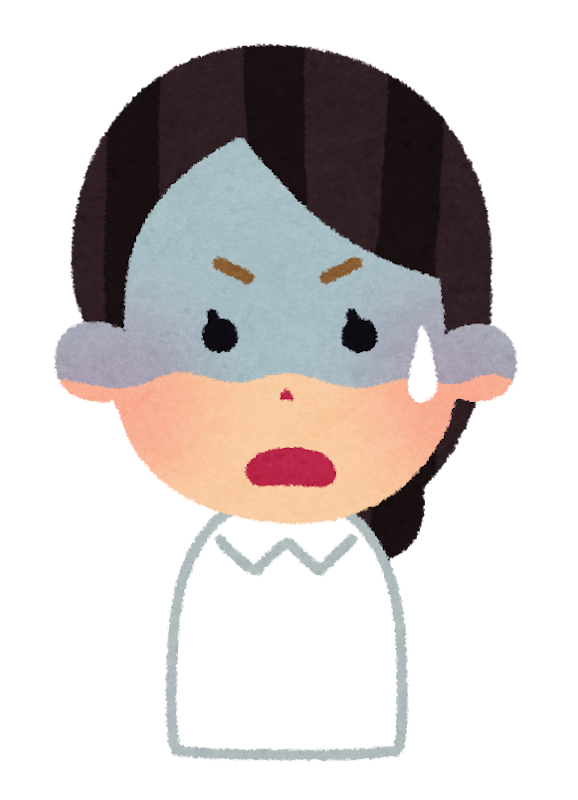「全然アリ|保険は必要?貯金があればOK!」
〜前回のつづき〜
●生活防衛資金は、安全&確実に!~銀行の普通預金がベストな選択~

生活防衛資金は
どこに貯めておけばいいのか?
すぐに引き出せるのが大事なので
銀行の普通預金が一番いいです。
たまに

「銀行が破綻したらどうしよう・・・」
とか言って
タンス預金してる人が
たまにいますけど
タンス預金は
全然オススメ出来ないですね。
これは盗難のリスクがあるからですね。
当然ですけど。
銀行が潰れるよりも
預金が引き出せなくなるというよりも
・盗難
・火事
のリスクの方が高い。
全然タンス預金は
オススメ出来ないので
普通に生活防衛資金分ぐらいは
銀行の普通預金に預けておけば
十分じゃないかと思います。
●貯金があれば保険はいらない?~生活費6ヶ月分が判断の目安~

いくら有れば
保険は解約してもいいのか?
生活費の6ヶ月分程度有れば
十分です。
例えば
100万円貯金が有るのであれば
私であれば
医療保険は今の段階で
全て解約します。
ガン保険も含めて。
そもそも
・医療保険
・ガン保険
私であれば
もともと入らずに
貯金していくと思います。
どうしても
もしもその最中に
困った事が起きてしまったら
家族とか友人に頼ると思います。
健康である可能性の方が高いので
そうして貯めていくと思います。
やはり
保険に入ってると
貯まりにくいので

「ほとんどの保険は無駄だ!」
と言ってる理由の一つですね。
もちろんこれは
人に言われたからとかじゃなくて
自分で判断して下さい。
保険のお話しは過去に
・医療保険
・学資保険
・年金保険
など今まで色々お話ししてきましたので
確認してもらえたらと思います。
●生活防衛資金を貯めながら投資もOK!~でも、まずは固定費の見直しが最優先!~

生活防衛資金が貯まるまで
投資してはいけないのか?
生活防衛資金を貯めながら
投資をするのは
全然アリです。
貯めるまで待ってたら
投資のやる気も冷めちゃったりとか
思い立ったが吉日というのは有るので
だから貯めながら
投資もしていけばいい。
ただし少額で始めて下さい。
旧積立NISAの枠内で
年間40万円ぐらいですね。
数千円で十分なので
無理の無い範囲でスタートして
慣れていくというのが大事です。
ただこれをするのであれば
無駄な保険なんかは先に解約して
固定費を見直さないと非常に効率が悪い。
なぜかと言うと
無駄な保険を解約する方が
下手に投資するより
よっぽど利回りがいいからですね。
投資にお金をまわすよりも
無駄な保険を解約したり
固定費を下げるというのが
効果的で最優先です。
〜〜〜つづく〜〜〜
Special Thanks college president Ryo.
●おまけ
≪≪Chat-GPTくんによる要約→perplexityちゃんによる文章まとめ≫≫
生活防衛資金の管理は、安心した生活を送るために重要です。まず、生活防衛資金は銀行の普通預金に預けるのが最適です。タンス預金は盗難や火事のリスクが高く、あまり推奨できません。また、保険に関しては、生活費の6ヶ月分程度の貯金があれば医療保険やガン保険を解約することも考えられます。自身の健康状態を考慮し、貯金を優先するのも一つのアプローチです。
さらに、生活防衛資金を貯めながら投資を行うことも可能ですが、少額から始めることが重要です。旧積立NISAの枠内で年間40万円程度からスタートするのが良いでしょう。ただし、投資を始める前に無駄な保険を解約し、固定費を見直すことが最優先です。固定費削減は投資よりも効果的な場合が多く、効率的な資産形成につながります。これらのポイントを踏まえ、自分に合った資産管理を行っていきましょう。
Citations:
[1] https://spaceshipearth.jp/life-defense-fund/
[2] https://my-best.com/articles/490
[3] https://allabout.co.jp/gm/gc/506943/
[4] https://konohoken.com/disability/article/emergency-fund/
[5] https://vertex-c.co.jp/column/article/86
[6] https://b43.jp/magazine/entry/0023
[7] https://www.metlife.co.jp/about/contents/money-guide/c-5-warm1/
[8] https://money-sense.net/780/
≪≪Chat-GPTくんによる英訳≫≫
~Continuation from Last Time~
【Keep Your Emergency Fund Safe & Accessible! – A Bank Savings Account is the Best Choice】
Where should you keep your emergency fund?
Since easy access is crucial, a bank savings account is the best option.
Some people worry, “What if the bank goes bankrupt?” and keep their money at home, but keeping cash at home is not recommended.
The biggest risks are theft and fire, which are far more likely than a bank collapse or being unable to withdraw funds.
For peace of mind, keeping at least your emergency fund in a bank savings account is the safest and most practical choice.
—
【Do You Really Need Insurance? – Six Months’ Living Expenses as a Benchmark】
How much savings do you need before canceling insurance?
Six months’ worth of living expenses is a good benchmark.
For example, if you have 1 million yen in savings, I would cancel my health insurance and even my cancer insurance at this stage.
In fact, I wouldn’t have taken out health insurance or cancer insurance in the first place—I would have just saved money instead.
If something unexpected happens, I would rely on family or friends.
Since the likelihood of staying healthy is higher, I would focus on saving rather than paying for insurance.
Insurance makes it harder to accumulate savings, which is why I believe “most insurance is unnecessary.”
However, this is a personal decision, so make sure to think for yourself rather than just following others’ advice.
I’ve discussed topics like:
– Health Insurance
– Education Insurance
– Pension Insurance
Feel free to review those as well.
—
【You Can Invest While Saving for an Emergency Fund! – But First, Cut Unnecessary Expenses】
Should you wait until your emergency fund is fully saved before investing?
No, you can invest while saving for your emergency fund.
If you wait too long, you might lose motivation, so starting small is perfectly fine.
A good rule of thumb is to invest within the old NISA framework (about 400,000 yen per year). Even a few thousand yen a month is enough—start small, stay consistent, and get comfortable with investing.
However, before investing, cancel unnecessary insurance and cut fixed expenses to maximize efficiency.
Why?
Because canceling useless insurance often provides a better return than investing.
Rather than immediately putting money into investments, reducing fixed costs—such as canceling wasteful insurance—should be your first priority for financial security.
Special Thanks OpenAI and Perplexity AI, Inc


